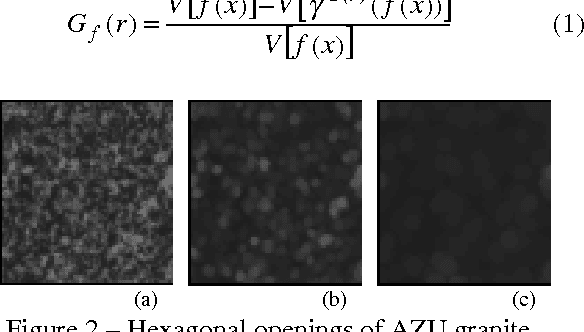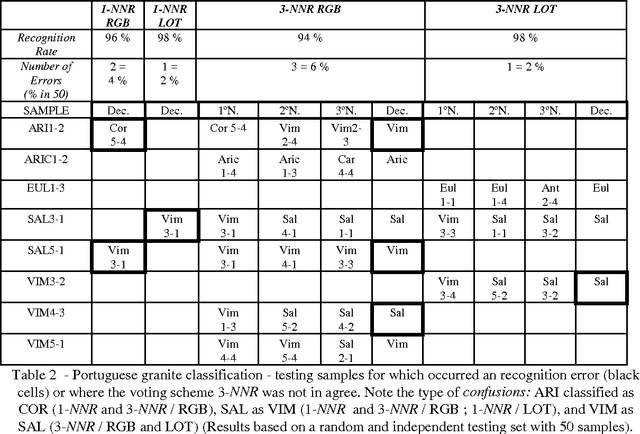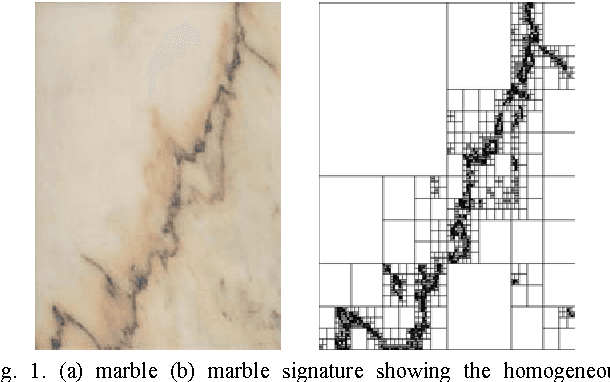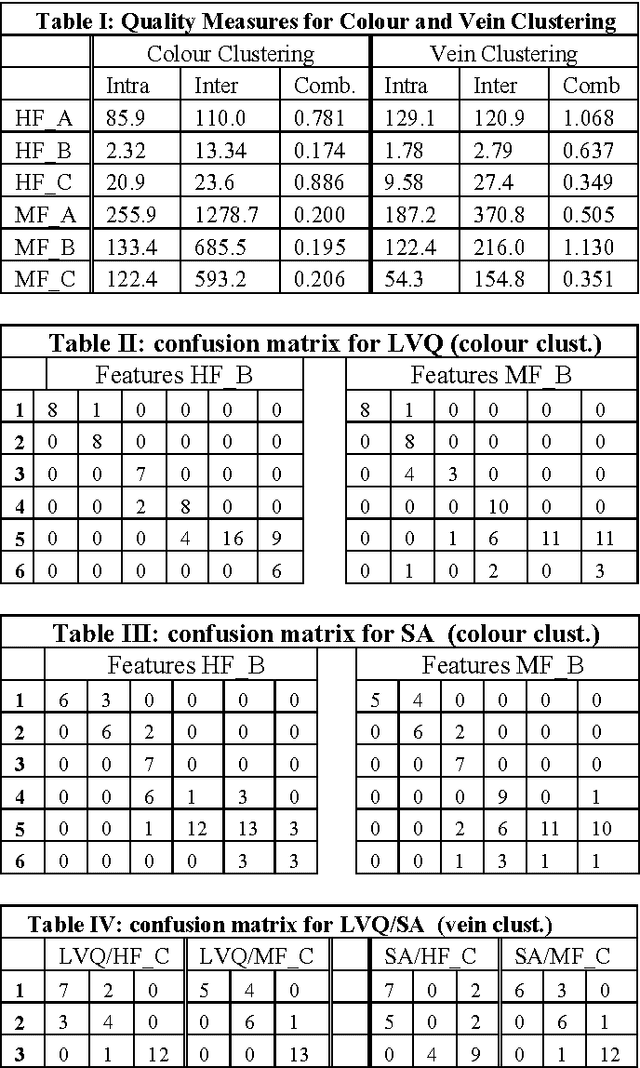Pedro Pina
From Feature Extraction to Classification: A multidisciplinary Approach applied to Portuguese Granites
Dec 17, 2004



Abstract:The purpose of this paper is to present a complete methodology based on a multidisciplinary approach, that goes from the extraction of features till the classification of a set of different portuguese granites. The set of tools to extract the features that characterise polished surfaces of the granites is mainly based on mathematical morphology. The classification methodology is based on a genetic algorithm capable of search the input feature space used by the nearest neighbour rule classifier. Results show that is adequate to perform feature reduction and simultaneous improve the recognition rate. Moreover, the present methodology represents a robust strategy to understand the proper nature of the images treated, and their discriminant features. KEYWORDS: Portuguese grey granites, feature extraction, mathematical morphology, feature reduction, genetic algorithms, nearest neighbour rule classifiers (k-NNR).
* 8 pages, 6 figures, Author at http://alfa.ist.utl.pt/~cvrm/staff/vramos/ref_21.html
Clustering Techniques for Marbles Classification
Dec 17, 2004

Abstract:Automatic marbles classification based on their visual appearance is an important industrial issue. However, there is no definitive solution to the problem mainly due to the presence of randomly distributed high number of different colours and its subjective evaluation by the human expert. In this paper we present a study of segmentation techniques, we evaluate they overall performance using a training set and standard quality measures and finally we apply different clustering techniques to automatically classify the marbles. KEYWORDS: Segmentation, Clustering, Quadtrees, Learning Vector Quantization (LVQ), Simulated Annealing (SA).
* 7 pages, 17 figures, at http://alfa.ist.utl.pt/~cvrm/staff/vramos/ref_41.html
 Add to Chrome
Add to Chrome Add to Firefox
Add to Firefox Add to Edge
Add to Edge